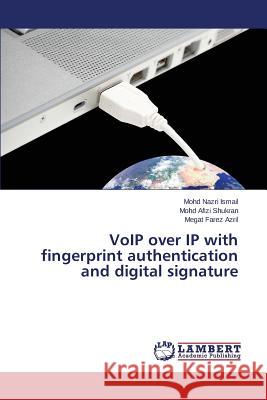VoIP over IP with fingerprint authentication and digital signature » książka
VoIP over IP with fingerprint authentication and digital signature
ISBN-13: 9783659620553 / Angielski / Miękka / 2014 / 84 str.
Voice over Internet Protocol (VoIP) nowadays is the popular communication technology. VoIP is easy to use and cheaper to make phone call over the internet. This paper is about adding Fingerprint Authentication as the biometric authentication for VoIP architecture and added on the end-user workstation for user login. We compare the VoIP performance on IPv6 and IPv4 LANs in presence in difference uses of softphone codecs. Softphone is uses to making call and SIP server at the voice gateway. The performance measures are jitter, packet loss, delays and Mean Opinion Score (MOS). Together with this, Digital Signature is added to ensure end-to-end security through the implementation of VoIP architecture. This paper divided into different chapters. Chapter 1 discusses the introduction of this book and early proposal for this project, chapter 2 are the collection of literature reviews taken from various of journals, proceeding papers and more that give lots of reference for this work. Chapter 3 is the project methodology, chapter 4 is the project developments, and chapter 5 shows the result after implementing the VoIP architecture according to its proposal and chapter 6 is the conclusion.
Voice over Internet Protocol (VoIP) nowadays is the popular communication technology. VoIP is easy to use and cheaper to make phone call over the internet. This paper is about adding Fingerprint Authentication as the biometric authentication for VoIP architecture and added on the end-user workstation for user login. We compare the VoIP performance on IPv6 and IPv4 LANs in presence in difference uses of softphone codecs. Softphone is uses to making call and SIP server at the voice gateway. The performance measures are jitter, packet loss, delays and Mean Opinion Score (MOS). Together with this, Digital Signature is added to ensure end-to-end security through the implementation of VoIP architecture. This paper divided into different chapters. Chapter 1 discusses the introduction of this book and early proposal for this project, chapter 2 are the collection of literature reviews taken from various of journals, proceeding papers and more that give lots of reference for this work. Chapter 3 is the project methodology, chapter 4 is the project developments, and chapter 5 shows the result after implementing the VoIP architecture according to its proposal and chapter 6 is the conclusion.











